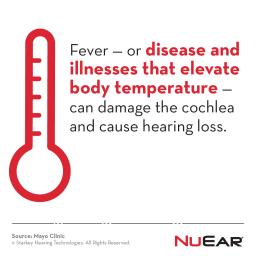Do’s and don’ts of communicating in a busy environment
Hearing aids are amazing! But even people with normal hearing can sometimes struggle in loud environments. If you find yourself in a busy environment, these tips can help. Do’s 1. Do look at the people you are speaking with. We all use visual cues whether we realize it or not.2. Do try to situate yourself in good…
The connection between diabetes and hearing loss
The relationship between hearing loss and diabetes has long been debated. But research now concludes that hearing loss is more prevalent in adults with diabetes. One research study included data from participants ranging in age from 20 to 69. Important information they found: People with diabetes were 2x more likely to have hearing loss than…
How do you say, “It’s also an ear-worn language translator”?
Introduced less than two months ago, Circa AI hearing aids are already changing how people think of and use hearing aids. Why? Because Circa AI is the first multi-purpose hearing device that not only sounds better than other hearing aids out there, it also let you track your brain and body health, stream music, phone…
You can now fine-tune your hearing aids from anywhere
With our new telehealth program, Hearing Care Anywhere, Circa™ AI hearing aid wearers can request minor adjustments to their hearing aids from their hearing care professional — without needing to make an appointment or stop into their office. Hearing Care Anywhere is convenient, and it’s easy to useIf you’re a hearing aid wearer, you know…
Hear better and live better with the Thrive Hearing app
If you haven’t yet heard about our revolutionary new Circa™ AI hearing aids, then before you read any further, check out this real quick. And maybe this too. If you have heard about it — or if you’re back from that short detour — then this blog is all about the Thrive™ Hearing app, the…
Stream Like Never Before with Three New Wireless Accessories
Designed to provide universal connectivity and greater streaming capabilities, three new wireless hearing aid accessories from Starkey Hearing Technologies work with Circa AI hearing aids to help you engage with the world around you. The TV While the Thrive Hearing app also enables direct streaming of audio, music and more with Circa AI hearing aids,…
Introducing A Hearing Revolution – Circa AI Hearing Aids
A hearing revolution has arrived. Brand new from NuEar® comes the world’s first healthable hearing aid with integrated sensors and artificial intelligence. Able to track brain and body health, CircaTM AI puts your hearing health in your hands through a new mobile app – the ThriveTM Hearing app – and a suite of new wireless accessories. Circa AI…
Using “Find My Hearing Aids”
You know that scary and stressful feeling you get when you misplace your keys or wallet? As some of you may know, that feeling gets worse when the items missing are your hearing aids. Hearing aids are an investment, and it is terrifying to lose something that’s often a big part of your day-to-day life….
High fever is one potential cause of hearing loss

Our hearing is a complex system of delicate and interconnected parts. And while it can withstand much, some things are known to damage the tiny hairs (stereocilia) and nerve cells in your inner ear — which can cause or result in hearing loss. These things include loud noises, natural aging, certain medications and, in some…
What are the differences in today’s hearing aid styles?
There is a wide variety of hearing aid styles available in the market, especially in regards to their size and the way they’re placed in or around your ear. When looking for hearing aids, all the information and options available can be overwhelming! To help, we’ve listed the most common styles of hearing aids available, along with…
